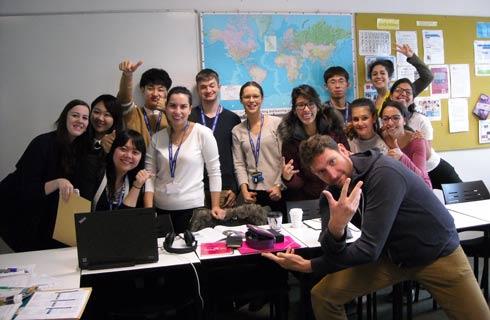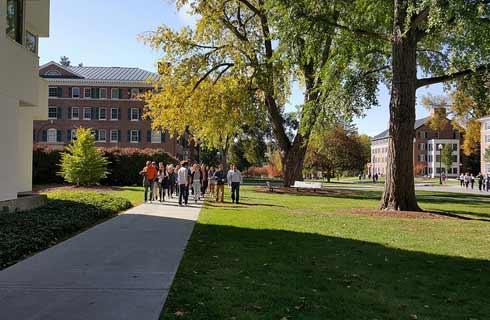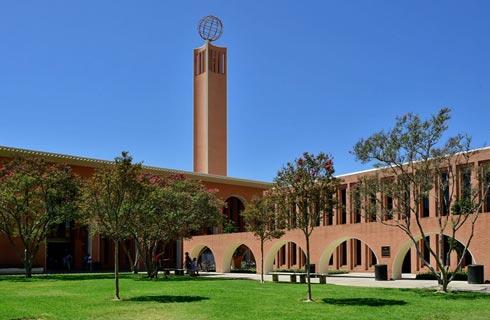- IDP China>
- 课程库>
- 工程与技术>
- 工程>
- 电机工程>
- Doctor of Philosophy in Electrical and Computer Engineering - Systems and Controls
电气与计算机工程哲学博士-系统与控制
Doctor of Philosophy in Electrical and Computer Engineering - Systems and Controls

学历文凭
Ph.D.

专业院系
Department of Electrical and Computer Engineering

开学时间

课程时长

课程学费

国际学生入学条件
Normally an overall standing equivalent to 83% in either a relevant thesis-based Master's degree or a University of Waterloo Master of Engineering (MEng) degree that includes a completed ECE 699 Master of Engineering Project course.
At the time of admission, each student must have a faculty supervisor who has endorsed the recommendation for admission.
Three references, at least two academic
Proof of English language proficiency, if applicable. TOEFL 80 (writing 22, speaking 20, reading 20, listening 18) IELTS 6.5 (writing 6.0, speaking 6.0)
IDP—雅思考试联合主办方

雅思考试总分
6.5
了解更多
雅思考试指南
- 雅思总分:6.5
- 托福网考总分:80
- 托福笔试总分:160
- 其他语言考试:PTE (Academic) - 60 (writing 60, speaking 60)
CRICOS代码:
申请截止日期: 请与IDP顾问联系以获取详细信息。
课程简介
Electrical and computer engineers shape the future through innovation. They develop and improve systems that serve everyday needs of society spanning from high-voltage engineering and sustainable energy, to breakthroughs in wireless technology. Our faculty and students do everything from creating low-cost digital x-ray imagers to combat tuberculosis in developing countries, to building real-time embedded systems to advance the design and reliability of commercial products. The Department of Electrical and Computer Engineering (ECE) is founded on leading engineering education and research, a world-renowned co-operative study program, and a bold history of innovation. Waterloo Engineering is ranked among the top 50 engineering schools in the world; our ECE department is committed to sustaining that excellence in our areas of research while venturing into growing areas of opportunity. We attract the best and brightest students and faculty from around the globe, and our graduates are recruited worldwide by leading engineering firms, corporations, government agencies, and research-intensive universities. A Doctor of Philosophy (PhD) degree is ideal for students pursuing a career in fundamental or applied research in academia, government, or corporate environments.<br><br>In the area of systems control, the objective is to make a physical system act in a desired manner through the use of an automatic feedback controller; for example, an autopilot (the controller) is used on an aircraft to maintain speed, altitude and direction. Feedback is a fundamental concept in engineering, and systems control harnesses its power to achieve desired system behaviours. Control systems are found in abundance in industry, and include the control of assembly lines, machine tools, robotics, aerospace systems and the process control widely used in chemical processing industry. As society continues to move towards computerization, use of control systems is becoming pervasive, and plays an increasingly important role. Expertise in the Systems and Controls area covers a wide range of topics, including linear control and nonlinear control, networked and distributed control, adaptive control, robust control, autonomous systems, stochastic algorithms, and discrete event systems. Areas of application include robotics, smart power grids, computer networks, financial economics, autonomous aerial and ground vehicles, multi-agent systems, humanoid robots, environmental monitoring, transportation networks, and psychological systems. Since most topics in systems control require advanced mathematical abilities, graduate students not only become skilled control systems practitioners, but also skilled in analysis.
相关申请
 预科
预科 奖学金
奖学金 实习机会
实习机会 在校学习
在校学习 跨境学习
跨境学习 校园授课-线上开始
校园授课-线上开始 在线/远程学习
在线/远程学习
学校排名

世界排名201
数据源:泰晤士高等教育世界大学排名
关于滑铁卢大学

滑铁卢大学是加拿大滑铁卢市的一家著名大学,是一所以研究为主的中等大小的公立大学,创建于1957年。以数学、计算机科学、工程学而闻名。该校位于安大略省的西南面的滑铁卢市,占地面积约为1000英亩。滑铁卢大学成立至今,仅数十年便跻身加拿大名校之列,是加拿大发展最快的学校。2011年到2013年,该校一直稳居麦克林杂志评选的加拿大综合性大学排名的第三位,是北美地区最优大学之一,其数学,计算机科学和工程学科教学水平居世界前列。特别是做为北美地区第一个经认可建立数学系的大学,拥有世界上最大的数学系以及世界上最大的合作办学项目。学校共授予100多个本科学位专业,28种硕士及博士学位专业,学校的代表队曾多次获得ACM 国际大学生程序设计竞赛的冠军。
本校相关课程

系统设计工程哲学博士
学历文凭
Ph.D.
开学日期
课程费用总额


系统设计工程工程学硕士
学历文凭
Masters Degree
开学日期
课程费用总额


社会学文学硕士[仅课程]
学历文凭
Masters Degree
开学日期
课程费用总额


Doctor of Philosophy in Religious Studies
学历文凭
Ph.D.
开学日期
课程费用总额


运动机能学博士-工作与健康
学历文凭
Ph.D.
开学日期
课程费用总额


娱乐与休闲研究哲学博士
学历文凭
Ph.D.
开学日期
课程费用总额

其他相关课程

电气与计算机工程哲学博士
 滑铁卢大学
滑铁卢大学学历文凭
Ph.D.
开学日期
课程费用总额


电气与计算机工程哲学博士
 达尔豪斯大学
达尔豪斯大学学历文凭
Ph.D.
开学日期
课程费用总额


电气和计算机工程应用科学硕士
 达尔豪斯大学
达尔豪斯大学学历文凭
Masters Degree
开学日期
课程费用总额


电气和计算机工程学硕士
 达尔豪斯大学
达尔豪斯大学学历文凭
Masters Degree
开学日期
课程费用总额


电气工程学士学位
 多伦多都会大学
多伦多都会大学学历文凭
Bachelor Degree
开学日期
课程费用总额


电子工程技术员文凭
 尼亚加拉学院
尼亚加拉学院学历文凭
Bachelor Degree
开学日期
课程费用总额


























